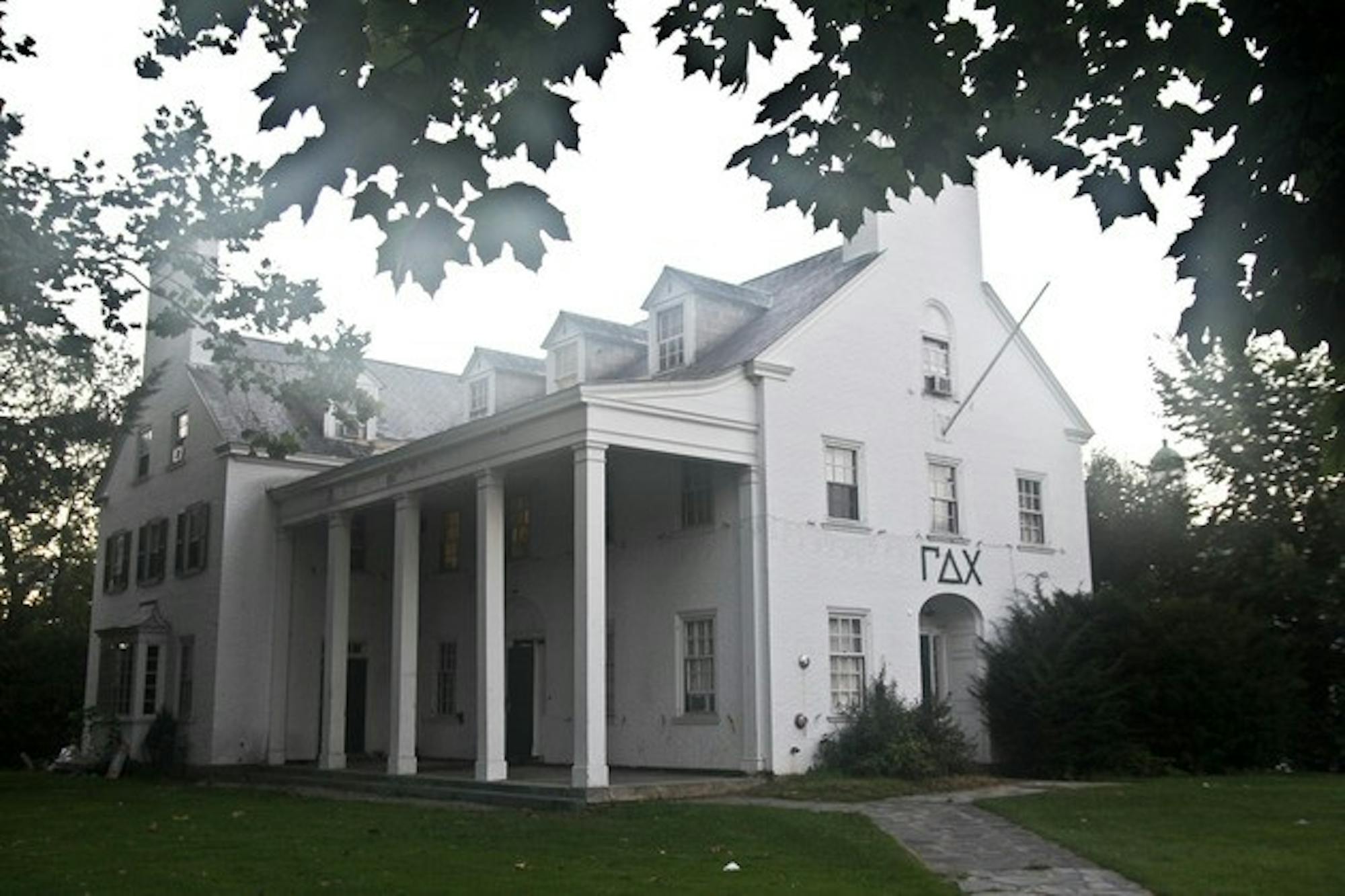Vemma is a health drink company that promotes its product through a multi-level marketing structure, in which people are compensated for referring the drinks to their friends and family members and are paid even more when those people promote the product to others. The company is highly controversial because of its hierarchical structure, though students who have begun to promote the product said that they have been relatively successful in doing so.
GDX's party aimed to promote Verve, the energy drink of Vemma's product line. Vemma also manufactures liquid antioxidant Vemma, weight-loss supplement Bode, hydration drink Thirst and the kids' drink Next.
Alkazin who made $1,465,413 from Vemma as of May 2012 has become one of the highest-paid participants of this marketing program, according to Dana Barbaro '14, a GDX brother who has begun promoting the product.
Barbaro said that he has also seen relative success, and has made approximately $3,000 to $4,000 from marketing the product to his GDX brothers, friends and family members.
"It's the first time I've had over $1,000 in my bank account," he said.
Barbaro began to use the product three years ago, when his trainer recommended the product to him as a supplement to his workout. After trying the product, he began to use it on a consistent basis, calling it a "great product" for athletes.
"I've been on this product for a long time," Barbaro said. "It gives you great energy and great recovery."
He initially began to promote the product line to his friends and family because he liked the product, but began to actively market the product for compensation when his trainer recommended that he become a brand partner.
"As an athlete, I didn't have time to do a 9 to 5 job," he said. "The business is real easy. It doesn't take much time and it already fits in my existing schedule."
Each Vemma drink consists of several nutrients, including over a dozen vitamins, minerals and antioxdiants, but the products come at a hefty price. One pack of Verve, which includes 25 8.3-oz cans, costs $68, and one pack of Vemma, which includes two 32-oz bottles, costs $63. A four week supply of Bode costs $215, and one pack, or 30 packets, of THIRST costs $68, according to the company's website.
Students who attended the discussion with Alkazin, a Vemma Royal Ambassador, and Karlie Frank, a Vemma Brand Partner, said they had a generally positive reaction to the product and its marketing program.
"Everything they had to say was very good and very genuine," Kyleigh said. "They weren't really trying to sell something to us. It was more about the quality of the product."
Kyleigh added that she plans on using the Vemma products and participating in the marketing program in the future.
Stephanie Uhrig '14, who attended GDX party but did not talk to Alkazin or Frank about the product, said she thought the drink looked like a "good product" with a lot of healthy ingredients, but was slightly skeptical about the company's marketing program.
"For any program like [Vemma] that goes after kids on college campuses, everyone should be a little more cautious," Uhrig said. "Nothing is as good as it seems a lot of the time."
Although participating in the marketing program itself is free, participants must pay a relatively high cost if they wish to purchase sample packs, or "builder packs," so that their potential "customers" can try the product. A silver level builder pack costs approximately $500 and a gold level pack costs roughly $1,000.
While Vemma's business is rated an A on the Better Business Bureau website, several people have filed complaints about the company on Rip Off Report, a website which allows users to post public complaints on companies. Specifically, a few people have stated the company continued to bill their bank accounts after they canceled their monthly subscription to receive the product.
Barbaro said that any skepticism for the program is a natural reaction toward something that "seems really good."
"It's legit, it's pretty easy to make money and it's not too good to be true," he said. He added that a company with the size of Vemma would be investigated and would have "too much to lose" if it were a scam.
Barbaro also said that Vemma which is supported by the Phoenix Suns and the Charlotte Bobcats is not operating under a pyramid scheme, though people often claim that it is.
Tuck School of Business Marketing professor Scott Neslin said Vemma's marketing scheme could be unethical if those marketers do not explicitly reveal that they are getting paid to promote the product.
"It can be effective if the idea is to have peers marketing the product to each other and having a social media type of thing," Neslin said. "The only question I would have in bringing this to campus is how upfront are the student marketers to the student customers about the fact that the marketing is encouraged and compensated for by the company."
Tuck professor Yaniv Dover said that the multi-level marketing business model that Vemma uses has been successful in several companies, but could not say whether it is sustainable.
Vemma representatives plan on giving a presentation to Dartmouth students on its product and the marketing program during fall term, Barbaro said.
Representatives from Vemma could not be reached for comment by press time.




